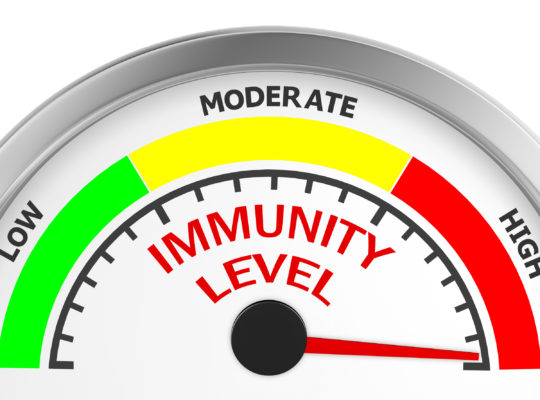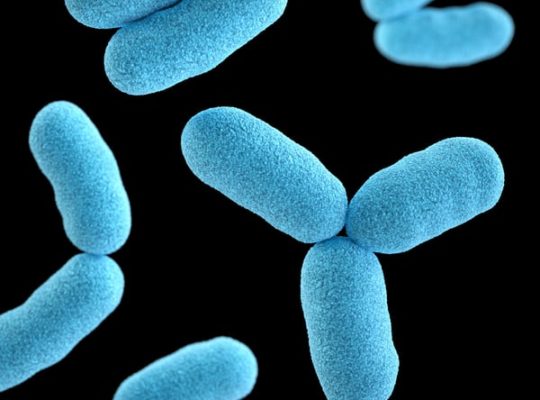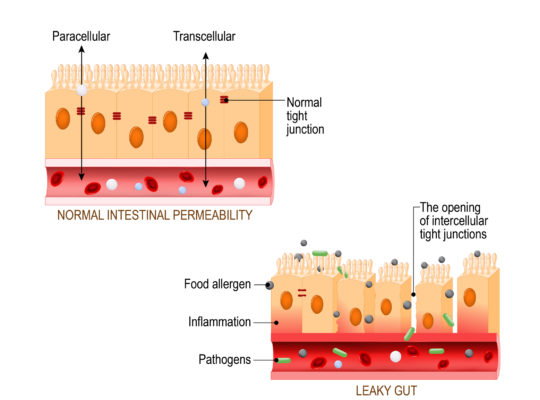As I mentioned in my acid reflux (GERD) article, heartburn is rarely due to overproduction of stomach acid, but is rather acid in the wrong place (e.g., the esophagus). Unfortunately, in spite of this, heartburn is still treated as if the root cause is overproduction of acid. Conventional treatment for heartburn includes both acid neutralizing and acid blocking drugs.
Acid neutralizers, commonly called antacids, include Mylanta, Tums, Rolaids, and baking soda which are commonly used for quick relief of reflux symptoms. They work by buffering (temporarily neutralizing) the acid your lower esophagus is exposed to, but they have short-term effects and don’t heal the tissue lining itself. They can be used occasionally without negative consequence. However, overuse of over-the-counter antacids can cause stomach upset or interfere with kidney function especially from those that contain aluminum and magnesium.
Acid blocking drugs work in a different manner. They focus on reducing or blocking acid production in the stomach. Two main types of acid-blockers include: H2 blockers and proton pump inhibitors (PPIs). When you take an H2 receptor blocker, such as Tagamet, Zantac and Pepcid, the active ingredients travel to specific receptors on the surface of the stomach cells (parietal cells) that release acids. The medication inhibits certain chemical reactions in these cells so that they aren’t able to produce as much acid. They provide short-term relief up to 12 hours.
Proton pump inhibitors (PPIs) also work on the parietal cells of the stomach. They work by interrupting proton/potassium pumps in these cells that help make stomach acid. For short-term use, this can be a wonderful thing. For example, if you had an ulcer or a short-term bout of acute stress that gave you gastritis. Ulcers are lesions in the stomach wall, and they need short-term relief from acid to heal. In the case of acid reflux, PPIs make gastric juice less acidic, so it isn’t as painful or damaging when the juice bubbles up into our esophagus. Long-term healing and prevention of both ulcers and reflux, however, requires lifestyle change. Proton pump inhibitors include Nexium and Prilosec and they take 1-3 days to begin working (and they can last in your system for that long after you stop taking them).
Short-term Use of Acid-reflux Drugs
Acid blocking drugs were approved by the FDA for only several weeks of consistent use at the most. Why? Because long-term use of PPIs like Nexium, Prilosec, and Protonix can deplete your body of critical nutrients and lead to a wide variety of diseases. Unfortunately, many people stay on them for years and decades. This can be detrimental to long-term digestive and overall health.
If we have low stomach acid, we can consume plenty of healthy food yet still become malnourished over time because of poor digestion.
Acid-blocking drugs obviously block stomach acid that can cause symptoms of heartburn and acid reflux. But your body needs stomach acid to digest protein and food, activate digestive enzymes in your small intestine, keep the bacteria from growing in your small intestine, and help you absorb important nutrients like calcium, iron, magnesium, other minerals and vitamin B12. Research shows that long-term use of PPIs may make you dangerously deficient in key nutrients. Mineral deficiencies increase risk for osteopenia and osteoporosis, and this is a consequence of prolonged acid blocking use as well.
There are dozens of other key nutrients that we can lose through long-term, high-dose PPIs. Most of these have not yet been formally studied yet in medical trials, but connections between low stomach acid and disease occurs. For instance, iron requires strong stomach acid for absorption and is critical for cardiovascular health, energy, and proper thyroid function. Chromium is key for blood sugar management (and is a known deficiency in most diabetics). Low Vitamin B12 will cause (or exacerbate existing) neuropathy which diabetics often experience as well as poor memory, cognitive impairment, and “brain fog.” It can also raise the risk of arterial plaque formation in the body due to increased homocysteine levels.
Good stomach acid is important for immunity
The powerful acid in our stomach is our first line of defense against microbes, including dangerous bacteria, fungus/yeast, and parasites. In this sense, taking a PPI for acid reflux is like draining the protective moat around our castle. It makes us vulnerable to foreign invasion. Recent studies have also proven that the weaker stomach acid caused by PPIs allows dangerous bacteria to enter and colonize the lower GI tract, causing anything from IBS to life-threatening infections. This is perhaps the most concerning, downstream dysfunction we see in clients who have been using PPIs a long time. Microbial imbalances often cause gastrointestinal disease (e.g., IBS), but the inflammation generated in the gut can wreak havoc on the body in places far distant from the gut (e.g., arthritis).
Why you Shouldn’t Quit Acid-reflux Medications Cold Turkey
After reading this article you might be tempted to stop taking PPIs and H2 blockers immediately, but you shouldn’t. Here’s why–quitting them cold turkey can cause a serious rebound effect, making your symptoms worse than before you started taking the medication. In fact, this rebound effect is believed to be responsible for why so many people take these drugs for longer than the recommended term. A study in 2009 showed people were likely to remain on PPIs indefinitely because drug withdrawal caused even worse heartburn than the patient experienced initially. Rather than quit cold turkey, it is better to enlist the help of a health care professional to wean yourself off the drugs over time.
Natural Treatment of Acid Reflux
If you are suffering from chronic heartburn, acid reflux, and GERD you need to know that there are other natural options to permanently address this condition without use of these drugs. I work with my clients to develop strategies that resolve the root cause of the problem. These strategies may include improving your eating hygiene, eliminating food triggers, increasing the body’s natural production of stomach acid, and other lifestyle modifications.







